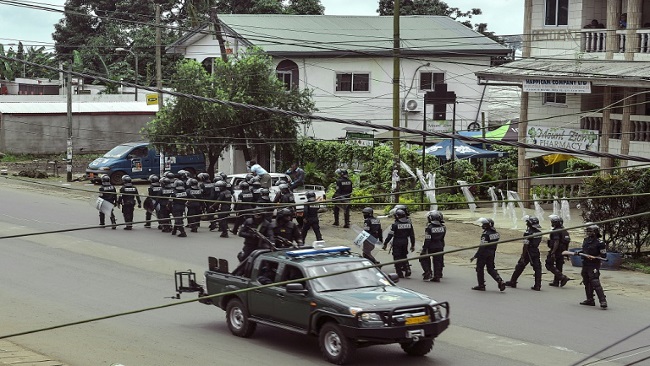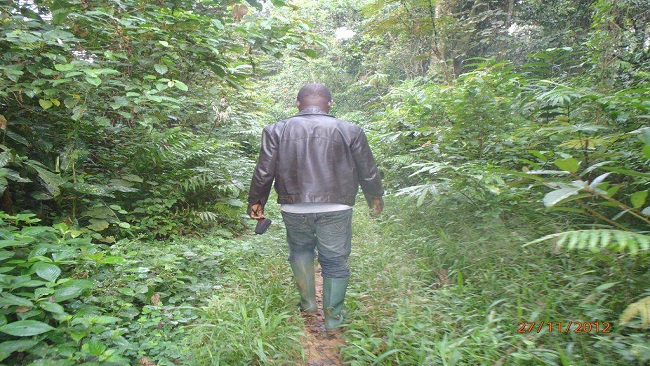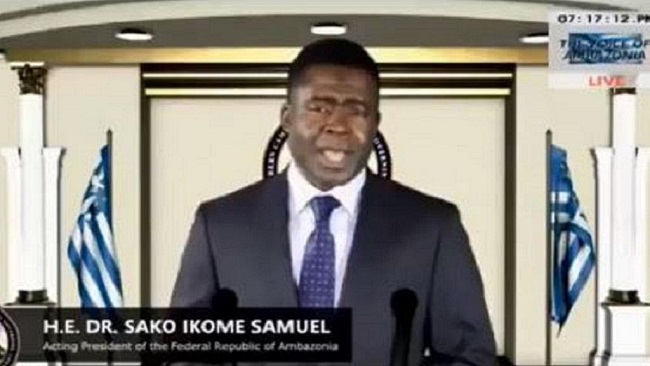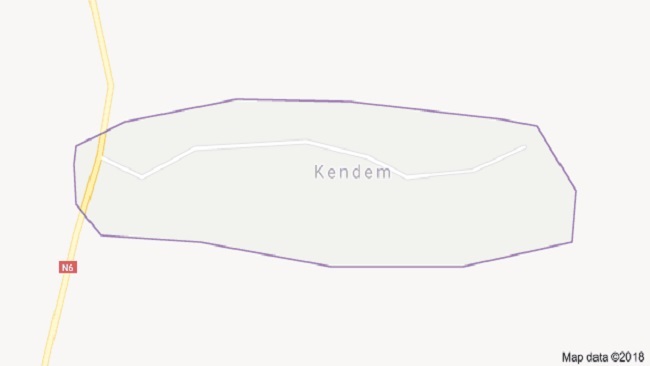31, March 2018
Southern Cameroons Crisis: U.K. cautions citizens in travel alert 0
The United Kingdom has issued a travel alert for Cameroon warning nationals to totally avoid travel to within 40km of the country’s borders with Nigeria, Chad and Central African Republic.
It also said Brits should not travel to the Bakassi Peninsula and specifically to the Ndian Division of the South West region. For the other parts of the Anglophone region, the directive said all but essential travel should be undertaken.
A summary of the March 27 directive issued by the Foreign and Commonwealth Office (FCO) read: “the FCO now advise against all travel to within 40km of the Cameroon/Nigeria border and Ndian division, and against all but essential travel to the rest of the North West and most of the South West regions; updated information on kidnaps and clashes in the North West and South West regions.”
There have also been multiple exchanges of fire between the Cameroonian security forces and armed groups over the past few months in some towns and villages in the North West and South West regions.
The U.K. position follows that of France earlier this week. The French Ambassador to Cameroon, Giles Thibaut tweet on Monday that the Anglophone regions were a no-go area for French nationals. The alert also cautions against all but Cameroon’s borders with Gabon and Congo.
It specifically mentioned the Koupé-Manengouba, Lebialem, Manvu and Meme divisions in South West region and the rest of North, North West and Adamawa regions as places that citizens should be careful when going to.
“The FCO recounted the March 2018 kidnapping of Tunisian and Cameroonians workers which rescue operation led to the death of a Tunisian. They also related recent armed exchanges between suspected separatists and security forces.
“Kidnaps of Cameroon officials have been reported in the North West and South West regions. There have also been multiple exchanges of fire between the Cameroonian security forces and armed groups over the past few months in some towns and villages in the North West and South West regions.
“This follows violent and deadly clashes between demonstrators and the Cameroonian security forces in the North West and South West regions in September and October 2017. Restrictions including night curfews, a ban on public meetings and other restrictions remain in place,” the statement added.
Source: Africa News





























31, March 2018
US and British troops killed in Syria 0
Two members of the US-led coalition in Syria, one British and another one American, have been killed in an improvised explosive device attack, according to official statements.
The attack, which took place on Thursday near the Syrian city of Manbij, injured five other troops too.
“Two coalition personnel were killed and five were wounded by an improvised explosive device in Syria” at around midnight (2100 GMT), the coalition said in a statement.
The British Defense Ministry also confirmed that the one of them was from within its ranks.
“The individual was embedded with US forces on a counter-Daesh operation when the incident occurred,” the ministry stated.
The US and its allies have been bombarding what they call Daesh positions inside Syria since September 2014 without any authorization from the Damascus government or a UN mandate.
The strikes, however, have on many occasions resulted in civilian casualties and failed to fulfill their declared aim of countering terrorism.
Since the beginning of the conflict in Syria in early 2011, more than 350,000 people have been killed, according to the United Nations’ estimates.
Syria has, for several times, written to the UN to complain that the US was flagrantly violating its sovereignty. The US supports militants fighting to topple President Bashar al-Assad and has repeatedly attacked Syrian army positions.
Source: Presstv